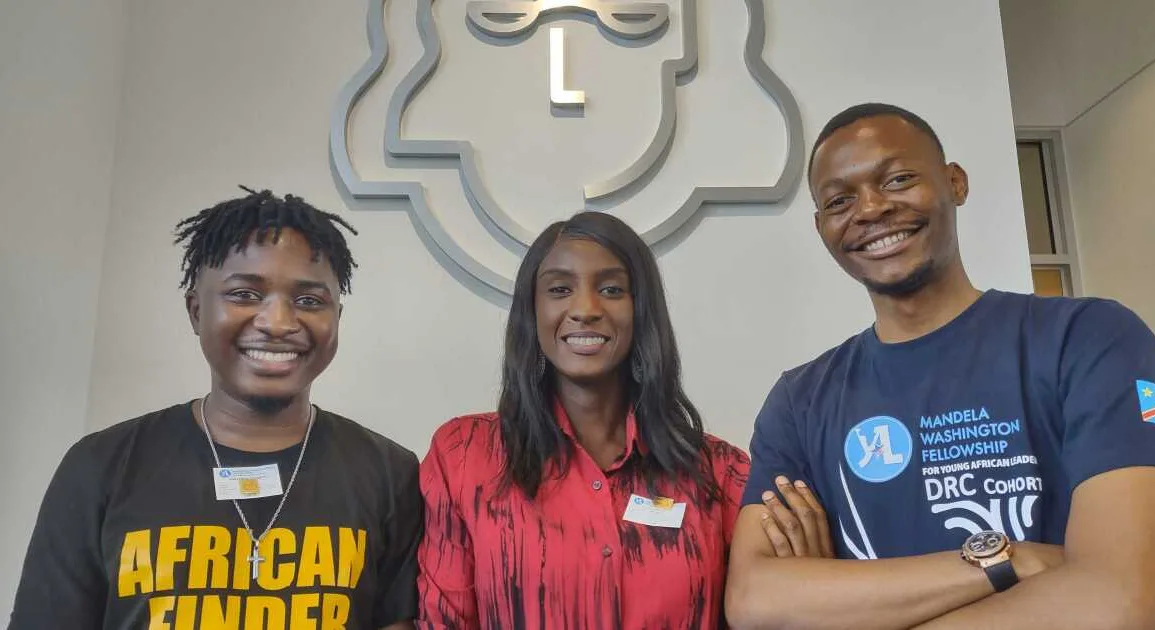BETHLEHEM, Pa. — Marvellous Nyongoro has spent the past three months crisscrossing the globe.
A 26-year-old Zimbabwean, Nyongoro is building hospitality and tourism businesses, and his work has taken him from his home country to South Africa to the United Arab Emirates.
- Lehigh University was host Saturday for 100 young professionals from sub-Saharan Africa as part of the Mandela Washington Fellowship
- The fellowship provides hundreds of Africans with networking and professional development opportunities every year
- The 25 fellows who have stayed in the Lehigh Valley have visited Philadelphia and New York City and met with local entrepreneurs and experts about expanding their businesses
But he’s put his work on hold to participate in a unique program at Lehigh University this summer.
The Mandela Washington Fellowship, a program sponsored by the U.S. State Department, each year brings 700 professionals ages 25 to 35 from sub-Saharan countries to American universities for coaching, networking and cultural exchanges.
Lehigh was host to 25 fellows for the past three weeks and on Saturday was host to 75 others staying at Drexel University, Rutgers University and the University of Delaware.
A worthwhile investment
Nyongoro said he viewed pausing his life for six weeks to travel 7,800 miles from home as a worthwhile investment.
Along with getting the opportunity to pick the minds of experts at Lehigh and American entrepreneurs, he said it’s provided him with contacts with other young business-minded Africans from the nations to which he hopes to drive tourism.
“The way we think about it, we bring the world to Lehigh.”
Junior Reina Toc
“There is no other opportunity that would give me a platform to network with people from different counties in one place as much as I’m getting here,” he said.
Junior Reina Toc, a program manager at the university’s Iacocca Institute, said this is Lehigh’s fifth year as host for the program.
For decades, the university and its global village program have sought to train and prepare the next generation of business leaders in an increasingly connected world, Toc said.
Holding the fellowship is another opportunity for the university to foster ideas and bridge people together, he said.
“The way we think about it, we bring the world to Lehigh,” Toc said.
‘Have to put in the seed’
Along with the coaching they’ve received at Lehigh, the fellows have met with local business owners, visited the United Nations and Standard & Poors offices in New York City and toured Philadelphia.
They’ve also had the opportunity to meet with community service groups, including the Miracle League of the Lehigh Valley, Toc said.
Getting a new perspective on community service was particularly of interest to Dior Birima, 29, a Senegalese woman who has championed women’s rights and girl’s education.
“We have to put in the seed. Now it is up to us to continue to work on that, to maintain the relationships and make it happen.”
Lionel Kabeya
Oftentimes, community service back home is viewed as an investment in infrastructure, she said — painting a school or cleaning up the community.
Seeing how American groups brought in volunteers to get involved in their missions and activities showcased other ways she can get resources for the causes she supports, she said.
“When I will be back in Senegal, I will try to implement these kind of activities that are different than what we have usually,” she said.
While Birima and others spoke positively of the program, they said it’s too soon to say if it’s been a success.
Much of what the program provides are networking possibilities, not just with resources in the United States, but with like-minded young professionals back in Africa.
Lionel Kabeya, 29, from the Democratic Republic of the Congo, works for the Federation of Businesses of the Congo, similar to a nationwide chamber of commerce.
He said the role has taught him firsthand that networking can be essential to a company’s growth, but those connections will wither if not carefully tended to.
“We have to put in the seed,” Kabeya said, making a planting motion with his hand. “Now it is up to us to continue to work on that, to maintain the relationships and make it happen.”



